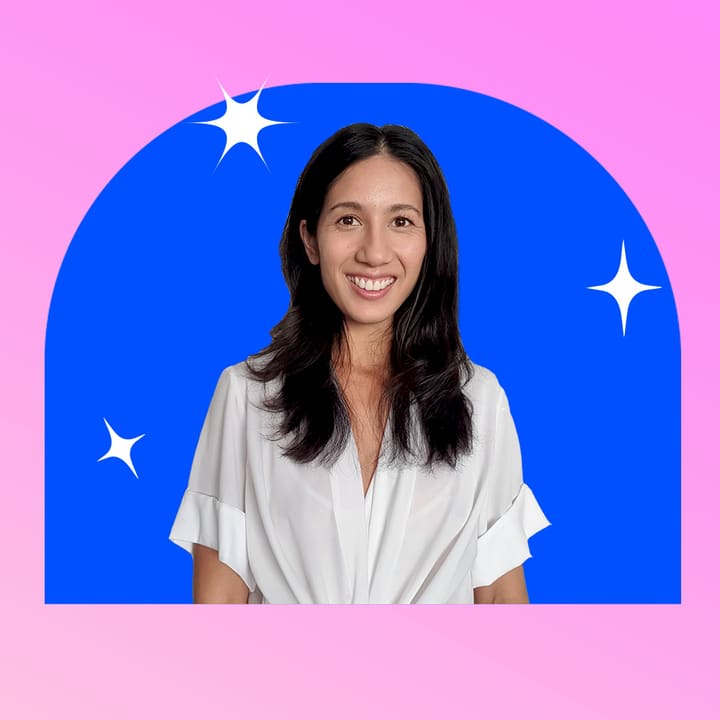POPSUGAR Australia is dedicating the month of September to featuring the next generation of inspired thinkers and courageous individuals who are building and manifesting a brighter future — because the next gen is unstoppable. We will deliver personal essays from young Australians who are making a name for themselves, as well as inspiring thought pieces and interviews with rising talent across different industries throughout the month. Find all of our pieces here, and if there’s someone you think is missing, email our editor so we can share their story — abardas@valmorgan.com.au.
We’re living in the information age, folks, and growing up alongside the Internet has made it surprisingly easy to craft a personal brand as a ‘smart person’. For a long time, I’ve been the friend people turn to for answers about what’s happening in the news and pop culture — so much so that I’ve written a book called How To Win Every Argument, and founded Zee Feed, an explainer journalism platform for young Aussies. Every day thousands of people come to me with questions, wanting answers (fair enough, it’s my job!)
Lately, though, I’ve been embracing the quiet, confident power of three words: “I don’t know.”
It might seem counterintuitive for someone building a career in spreading knowledge to make this her mantra. But with the help of my psychologist I’ve learned about how helpful and important it is to admit what we don’t know. It’s a habit that everyone should be practising — especially people with big ambitions, those working to create important change in the world, and everyone whose TikTok FYP is full of ‘eldest sister’ content (if you know, you know…)
While it was uncomfortable at first, and often still is, admitting what I don’t know on the daily has had a surprisingly positive impact in three major areas of my life.
It’s Helped Grow My Business
People expect those working in the media industry to always have the answers, but some of the best editorial decisions I’ve made for Zee Feed have come from admitting the seemingly obvious things I did not know. Remember when Australia’s Attorney-General was the subject of criminal allegations earlier in the year? While reading all the extensive, detailed and important coverage on this news, I sheepishly realised: “I don’t know what an Attorney-General really is.” Embarrassing, for a supposedly smart woman whose work focuses on the news, politics and power, right?
After shrugging off the shame of what I did not know, I wrote a simple article answering my own question. It was the best performing article on-site for the month and the quarter. In fact, the best performing content on Zee Feed is often something that answers my own silly questions.
Rather than decreasing my impact as a journalist, admitting what I don’t know puts me right alongside my audience and makes me better at helping them understand what matters.
It’s Helped Me Meet Interesting People
The beautiful thing about admitting your ignorance is that it creates the space for you to seek out people who do know. I’ve been lucky enough to speak to incredibly intelligent and interesting experts and people with lived experience in a range of areas – foreign policy experts, comedians, refugees, historians, start-up founders, community organisers and more.
These conversations are always more informative and more fun when coming from a place of curiosity, rather than trying to ‘prove’ my own understanding of their expertise. If you’ve got a genuine question, most experts are more than happy to respond to an email or have a chat – you don’t need to be a journalist to ask. They’ve earned their expertise and want to see it shared.
It’s Strengthened My Compassion for Others and Myself
But for me, one outcome far outweighs the rest. Learning to say “I don’t know” has been fundamental in planting the seeds of self-compassion. As someone who’s been labelled ‘smart’ from a young age, influencing my self-perception, the ability to answer other people’s questions became a fundamental part of my identity and how I evaluate my self-worth. But no one can be expected to know everything, no matter how well-read, intelligent or passionate they might be.
The more I learn to accept this, the less pressure I put on myself to be perfect. It’s also growing my compassion for others — I’m more forgiving of mistakes and have a better understanding of how fear drives people to unlikely or unproven sources of information.
We all need to get comfortable saying “I don’t know” out loud — to ourselves and to others, now more than ever. Of all the self-improvement hacks I’ve tried, this one has the greatest power to spread compassion, eliminate judgement, and put the focus on learning rather than knowing.
You can follow Crystal Andrews’ Zee Feed on Instagram.

